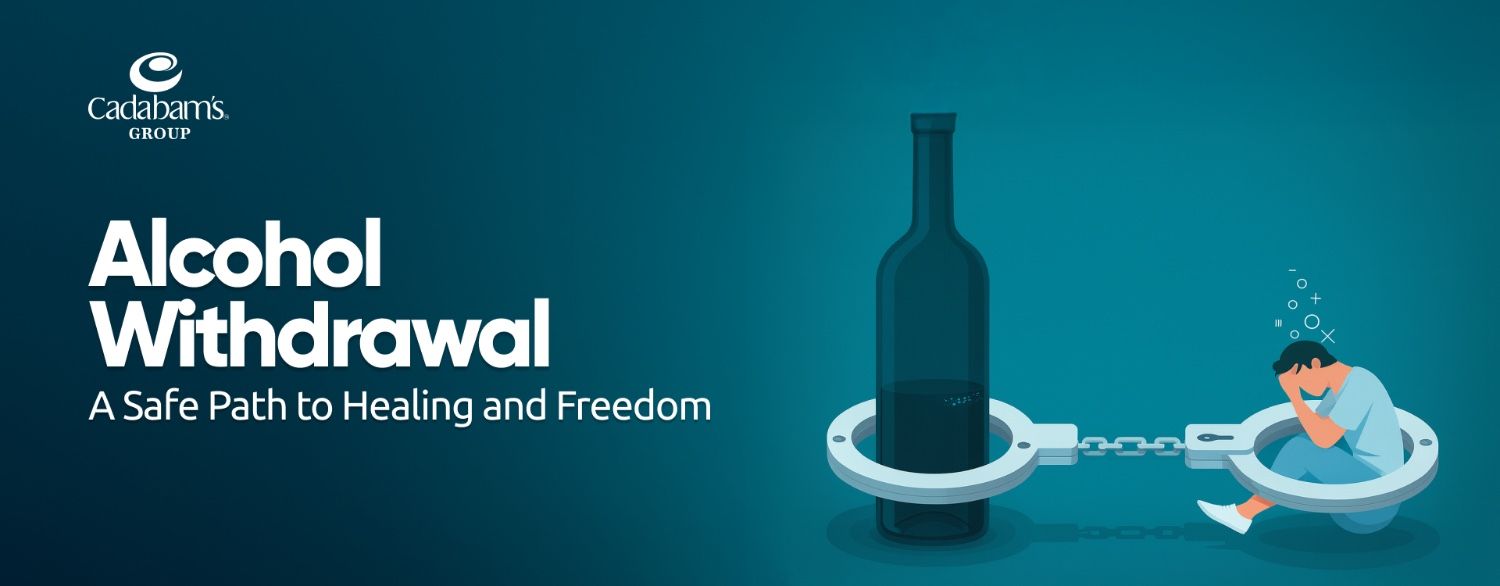Alcohol Dependence
Alcohol Addiction or Alcoholism has been portrayed in popular culture as something that is part of a happy life and sometimes develops into a bad habit. What many people fail to understand is that it can also develop into a serious mental health issue. A person is said to be facing alcohol addiction when they go binge drinking.
They also have a problem when they consume heavy quantities of alcohol regularly, or have trouble staying sober for a long time. A person needs to get help from a rehabilitation center for alcohol if they are suffering social, relationship, or workplace problems due to their consumption of alcohol.
Symptoms of Alcohol Dependence Syndrome
Patterns of Drinking If You Are Dependent on Alcohol
- Daily heavy drinking
- Binge drinking episodes
- Morning drinking to ease withdrawal
- Continuous alcohol use throughout the day
Emotional and Behavioral Responses to Alcohol Dependence
- Irritability, mood swings, and social withdrawal
- Depression, anxiety, and defensiveness
- Euphoria, lowered inhibitions, and risky behaviors while drinking
- Poor judgment and neglected responsibilities
- Cravings and withdrawal symptoms when not drinking
- Physical discomfort (tremors, sweating, nausea)
- Difficulty functioning or staying sober
The Onset of Alcohol Dependency
- Rapid or gradual development
- Loss of control over drinking
- Coping with stress
- Personal, environmental, genetic factors
Our Professionals
Causes of Alcohol Dependence
Genetic predisposition, stress, mental health issues, social environment, and patterns of heavy or binge drinking contribute to the development of alcohol dependence.
Family History of Alcoholism
A family history of alcoholism significantly increases the risk of developing alcohol dependence due to genetic and environmental factors. Growing up in a household with alcohol abuse can influence drinking behaviors and attitudes toward alcohol, perpetuating a cycle of dependency across generations.
Psychological Factors
Individuals struggling with mental health issues such as depression, anxiety, stress, or trauma are more likely to turn to alcohol as a coping mechanism. Over time, this can lead to dependence as the individual relies more heavily on alcohol to manage their psychological distress.
Social Factors
An individual's environment and culture can significantly influence their drinking habits. Peer pressure, social norms that encourage drinking, and easy access to alcohol can all contribute to the development of alcohol dependence.
Personal Habits
Regular and heavy drinking habits can lead to the development of tolerance and dependence. This is especially true for individuals who use alcohol to cope with social situations stress, or to avoid facing personal issues.
Environmental Factors
Exposure to stressful environments, whether at home, work, or due to economic or social instability, can increase the risk of turning to alcohol as a means of escape, eventually leading to dependence.
Understand the various aspects of this condition

Types of Alcohol Dependence
Alcohol dependence ranges from mild to severe, based on drinking patterns, dependency level, and the impact on health and functioning.
Mild, Moderate, and Severe Alcohol Dependence
Mild: Characterized by meeting only two to three of the criteria for diagnosis. Individuals may start experiencing negative consequences from their drinking but can often make changes with less intensive interventions.
Moderate: Meeting four to five criteria, this level indicates a higher degree of dependence, with more significant health, social, and legal issues arising from alcohol use.
Severe: This is indicated by meeting six or more criteria, showing a high level of addiction, with alcohol consumption taking precedence over all other aspects of life. Severe dependence often requires intensive treatment, including detoxification and long-term rehabilitation.
Functional Alcohol Dependence
Individuals with functional alcohol dependence manage to maintain their jobs, relationships, and other responsibilities despite their heavy drinking. They often conceal their drinking habits and may not recognize their reliance.
Chronic Severe Alcohol Dependence
This type is characterized by long-term, excessive alcohol use, leading to significant physical and mental health issues, social and interpersonal problems, and often, financial and legal troubles. Individuals usually require comprehensive medical and psychological support.
Psychological Dependence on Alcohol
In this form, individuals may not drink daily or in large amounts, but they rely on alcohol to cope with stress, anxiety, or depression. The dependence is more about the psychological need than the physical craving.
Find nearest mental health center now

Rehabilitation for Alcohol Dependence Syndrome
Rehabilitation for Alcohol Dependence Syndrome offers a comprehensive path to recovery, integrating medical detox, behavioral therapies, support groups, and holistic approaches. Embrace a healthier lifestyle and regain control of your life with dedicated support with a world-class facility like Cadabams- reach out to explore how we can support your rehabilitation process.
Find Hope and Healing from Alcohol Dependence with Cadabams
Discover hope and healing from alcohol dependence at Cadabams, where our expert team of mental health professionals provides a compassionate and comprehensive approach to recovery. Through personalized treatment plans, including medical detox, therapy, and holistic care, we empower individuals to overcome dependence and rebuild their lives. Let Cadabams be your partner in the journey to sobriety and wellness.
If you are searching for a solution to your problem, Cadabam’s Rehabilitation Centre can help you with its team of specialized experts. We have been helping thousands of people live healthier and happier lives for 30+ years. We leverage evidence-based approaches and holistic treatment methods to help individuals effectively manage their alcohol dependence. Get in touch with us today. You can call us at +91 96111 94949
Listen to Our Expert Insights on Alcohol Dependence
Our centres where we treat Alcohol Dependence
Diagnosis of Alcohol Dependence Syndrome
The diagnosis of Alcohol Dependence Syndrome involves a comprehensive evaluation by healthcare professionals, incorporating interviews, questionnaires, and medical assessments. Criteria include a strong desire to drink, difficulties in controlling consumption, withdrawal symptoms, tolerance, neglect of alternative pleasures, and persistent drinking despite harmful consequences. Accurate diagnosis considers the extent of dependence and its impact on the individual's life, guiding the pathway to effective treatment.
Treatment for Alcohol Dependence Syndrome
Treatment involves detoxification, counseling, medication, support groups, and lifestyle changes to manage cravings and promote long-term recovery.
Medical Detoxification
Medical detoxification safely manages the acute physical symptoms of withdrawal from alcohol under medical supervision. This process often involves medication to ease withdrawal symptoms and constant monitoring for complications and can serve as the first step toward longer-term treatment and recovery from alcohol dependence.
Behavioral Therapies
Behavioral therapies for alcohol dependence focus on changing drinking behavior through skill development and support. Cognitive Behavioral Therapy (CBT) and Dialectical Behavior Therapy (DBT) help modify thought patterns and coping mechanisms. Contingency Management (CM) reinforces positive behaviors, while 12-step Facilitation promotes sobriety through peer support. Family and Couples Therapy addresses interpersonal issues contributing to alcohol use.
Support Groups and Peer Support
Support groups and peer support play a crucial role in recovery from alcohol dependence, offering a community of individuals with shared experiences. These programs provide emotional support, practical advice, and a structured approach to sobriety, fostering a sense of belonging and mutual encouragement.
Dual Diagnosis Treatment
Dual-diagnosis treatment addresses co-occurring alcohol dependence and mental health disorders, recognizing the interconnectedness of these conditions. It integrates care for both issues simultaneously, using a combination of psychiatric evaluation, medication, therapy, counselling, and support services to treat the whole person and improve overall outcomes.
Lifestyle and Holistic Approaches
Lifestyle and holistic approaches to alcohol dependence recovery encompass a broad spectrum of practices aimed at enhancing overall well-being. This includes nutrition, exercise, mindfulness, meditation, and stress management techniques. Such methods support physical health, reduce cravings, and promote emotional balance, contributing to sustained recovery.
Find out about centres, daily updates and more about mental health

Why Choose Cadabams for Alcohol Dependence?

33+ years of focused mental healthcare, shaped by 1000+ real patient journeys.

State of the art mental health centres built for treatment and recovery.

A coordinated team of psychiatrists, psychologists, counsellors, and rehabilitation specialists supporting your care.

Support from early signs through treatment and recovery.

Treatment guided by clear plans that continue beyond diagnosis.

Planned follow ups and continued guidance to help maintain progress over time.
Facilities & Amenities
Frequently Asked Questions
Anunitha’s unique approach integrates medical care with psychological and social support in a serene, healing environment. Our holistic care, personalized treatment plans, and dedicated staff set us apart in fostering effective, lasting recovery.
Cadabams offers a holistic approach to treating alcohol addiction. We have a daily structure, medical supervision, and multiple therapeutic approaches to ensure that comprehensive recovery is achieved. Learn more: https://vimeo.com/605403086
Alcohol affects your perception and judgement. It affects your relationships, leads to risk-taking behaviors and so much more. This leads to broken relationships, accidents, aggression, violence and more.
One important step is to generate awareness about the effects of alcohol addiction. This needs to begin at a young age. Youngsters need to be advised on the ill effects of alcohol. Further, it is important to understand that there are several approaches to enjoying life and alcohol need not be a part of that. If the problem has already developed, then it must be diagnosed or addressed at the earliest.
Recognizing that one has a problem with alcohol is the most important step. Once this is done, it is important to undergo physical examinations and assessments to understand the damage done by alcohol to your body. The most important treatment procedure is to stay away from alcohol itself. Treatments range from outpatient treatments, hospitalization and rehabilitation.
Alcohol has different effects on the body and the mind. It damages the liver during metabolisation. This leads to fatty liver, enlargement, leading to liver damage. This leads to Liver Cirrhosis, which consequently can move on to different disorders. It affects your judgement, can lead to loss of consciousness and can lead to memory problems as well.
Case Studies
Our Programs
Our Testmonials
Blogs you may be interested in
Helpline at your fingertips
+91 9611194949

.webp)








-min.webp)



.avif)

-min.webp)

.avif)

.avif)
.webp)

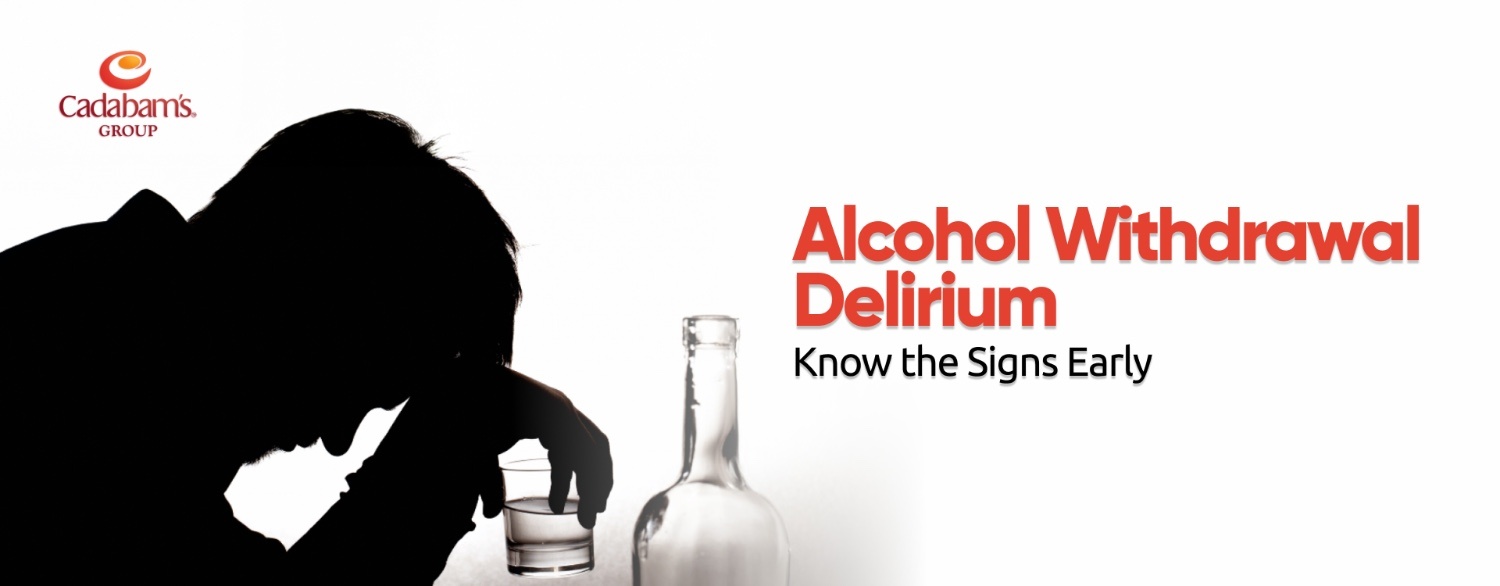
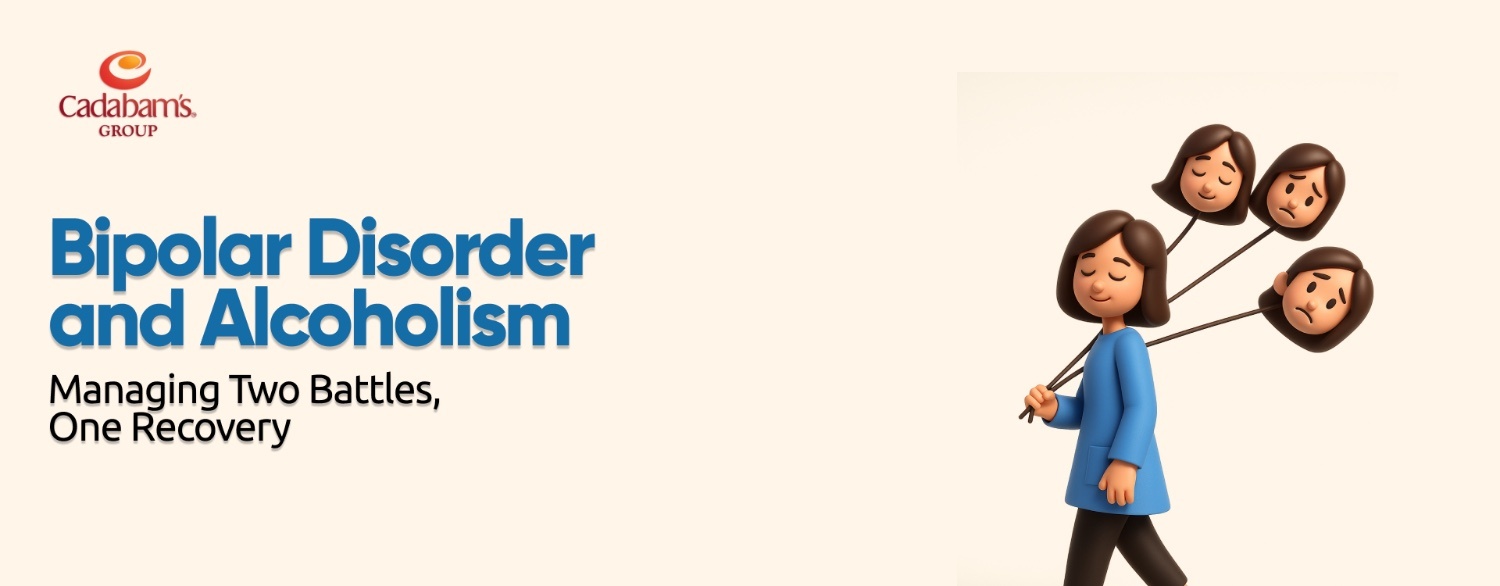
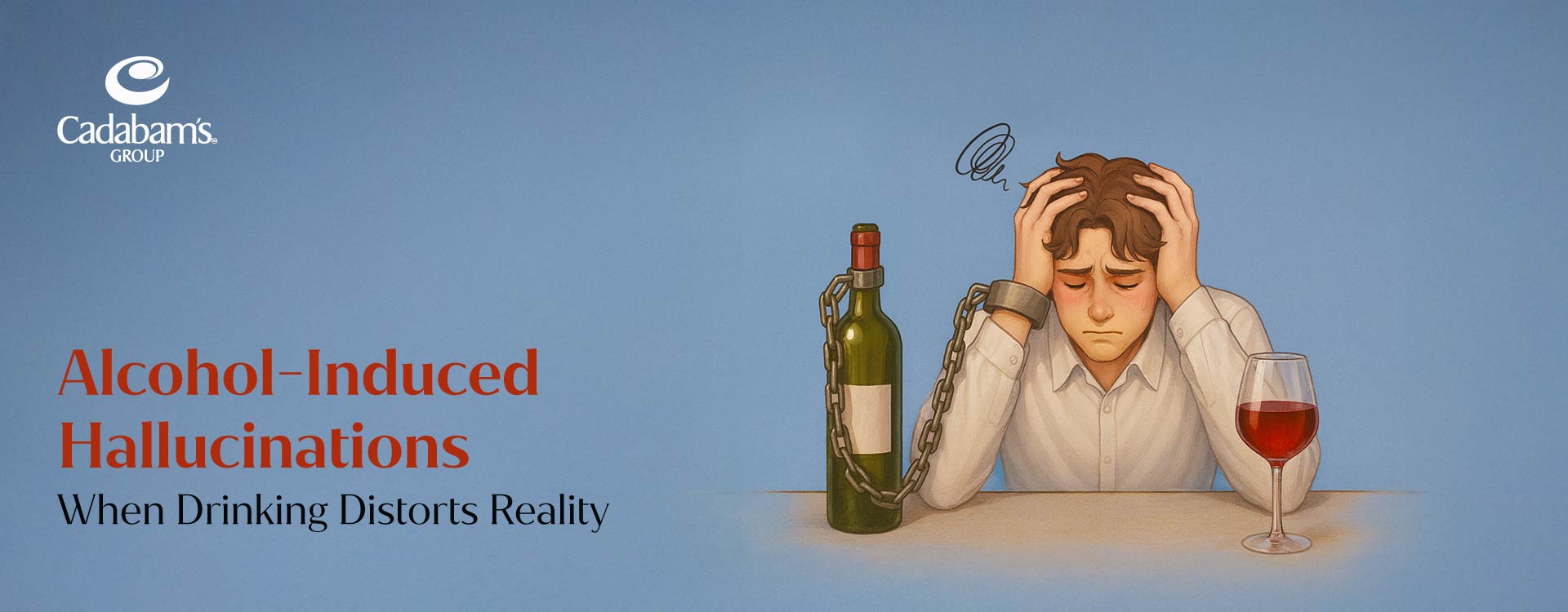
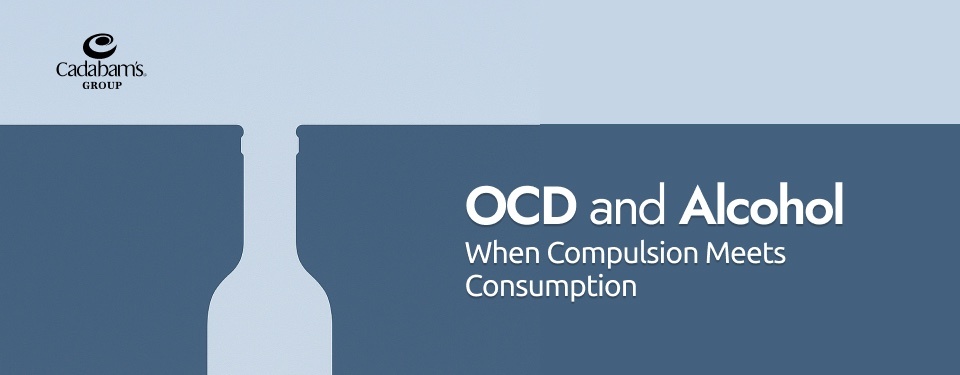

.jpg)
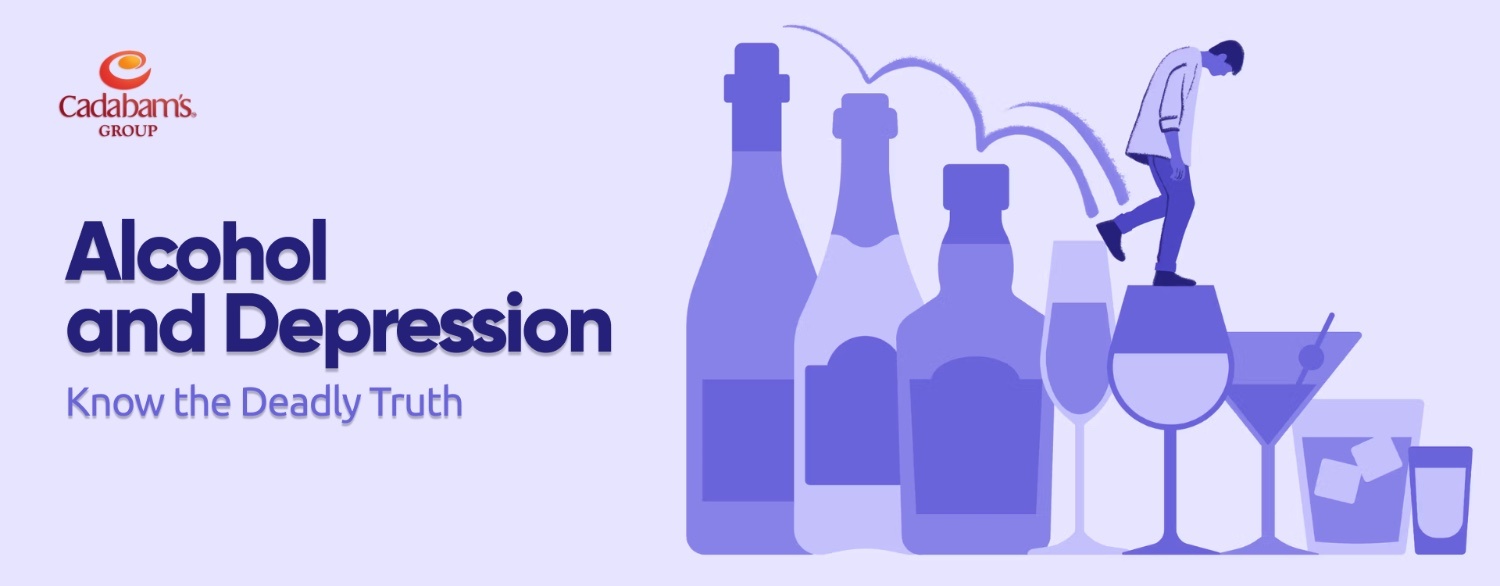











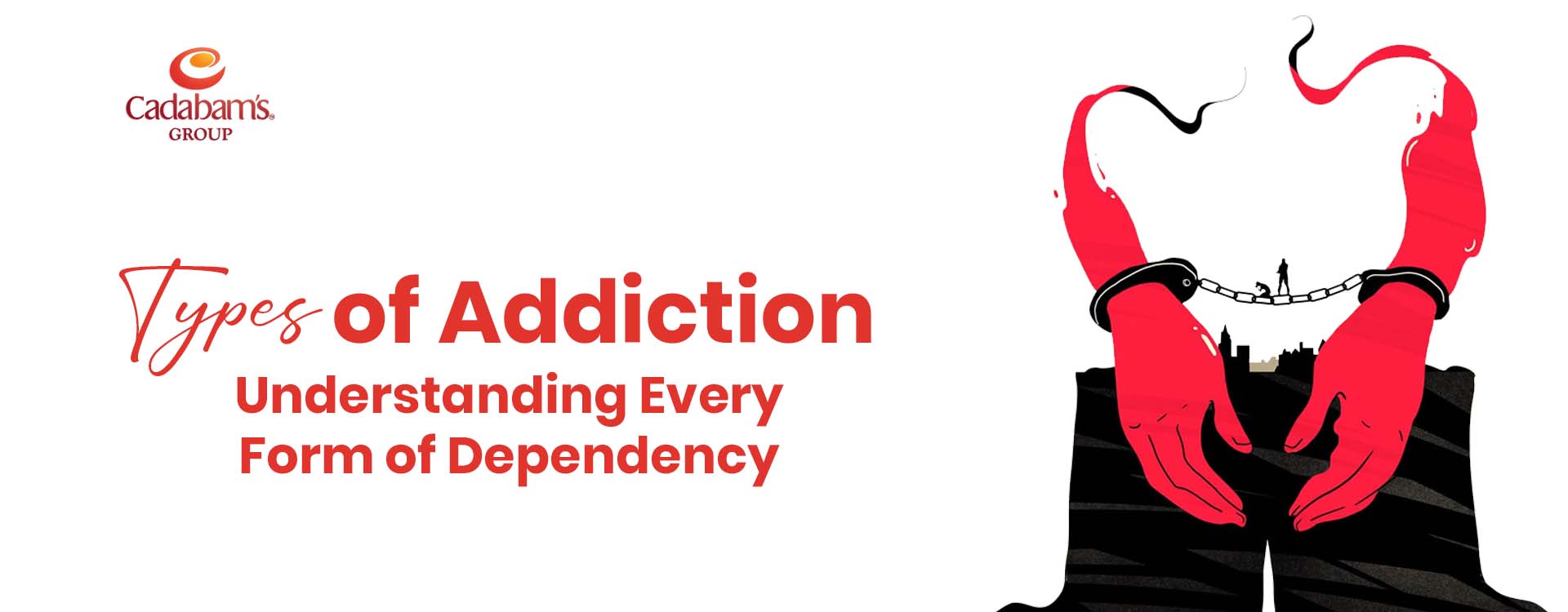






.jpeg)






